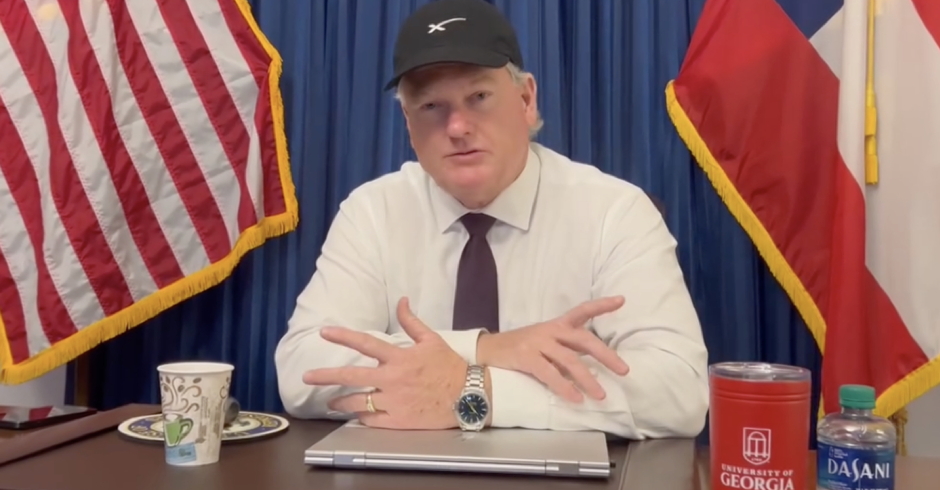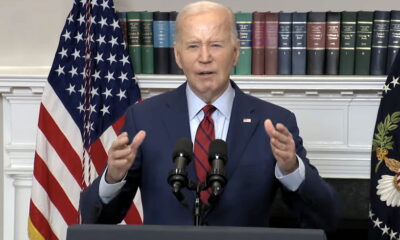Stop The Violence – LGBT Rights Are Human Rights: An Historic US Sponsored Conference
TIRANA, ALBANIA – This past week, dozens of LGBT activists from countries in and around southeastern Europe gathered at the Tirana International Hotel for a precedent-setting event: “Stop the Violence: LGBT Rights are Human Rights,” the first LGBT conference ever sponsored by the U.S. government in a foreign country. Over two and a half days filled with panels, meals, cocktails, and even an art exhibition in Tirana, Albania’s capital city, the activists, most of them young, shared stories and best practices on topics like engaging with law enforcement and using social media. They also talked with U.S. Embassy representatives from their respective countries about how the LGBT community and American officials can work together to advance the principle of Secretary of State Hillary Clinton’s now-famous statement “gay rights are human rights.” It was no coincidence that the second half of the event’s title echoed this statement, the essence of which often imbued the conference with an air of excitement, resolve, and joy.
But the first half of the conference’s title, “Stop the Violence,†was a reminder of the stark contrast between the event and the reality of life for many of the activists in their home countries, most of which are still working to transform into well-functioning, accepting democracies.
Consider Albania. In this small Balkan country, just two decades removed from the fall of a communist regime that was largely intolerant of difference, the LGBT movement is scarcely three years old, boasts only a few hundred active members, and faces continuous challenges. Rewind to March, for instance, when the country’s Deputy Defense Minister Ekrem Spahiu announced that, if the LGBT community in his country attempted to hold a Pride parade, “they should be beaten with truncheons.†Two months later, when a small group of activists staged a bike rally on the International Day Against Homophobia in heavy rain and Tirana’s chaotic traffic, their route was further disrupted when people waiting on the sidewalk threw homemade smoke bombs into the street.
Perhaps unsurprisingly, the LGBT conference in Tirana, while not a secret, was also was not widely publicized. “I’ll be honest, most Albanians don’t know this conference is going on,†a representative of the U.S. embassy told me. “We didn’t push it. If we had, we might have faced some negative response.â€
The same could have been said in most any country in the region if it had hosted the conference, as an image of Europe posted on the wall outside the event’s main room revealed. The “rainbow map,†prepared by the International Lesbian, Gay, Bisexual, and Trans Association (ILGA) earlier this year, indicates how well-constructed national laws are to protect and provide for the LGBT community. Generally speaking, as one moves east across Europe, the situation gets worse and worse. On a scale of -12 (terrible) to 30 (excellent), Albania receives only a 6, as do Bulgaria, Romania, and Serbia. Kosovo, Poland, and Greece rank at a 2, while Russia, Macedonia, and Moldova are at -4 or lower.
But weak legal systems are only part of the picture. Homophobia driven by traditional norms, nationalism, and religion is an enormous obstacle for the inchoate LGBT communities. In 2008, for instance, activists who had gathered on a bus to stage a demonstration in Moldova were trapped inside by hundreds of angry, screaming protesters, many of them religious. (The vast majority of Moldovans are Orthodox Christian.) Nine phone calls to the police went unanswered. Since then, the LGBT community has focused more on unplanned demonstrations like flash mobs, which, according to one activist, only attract backlash afterward “from the bigots and homophobes who missed the party.â€
Another activist, Zdravko Cimbaljevic of the group LGBT Forum Progress in Montenegro, one of the former Yugoslav republics, reported a beating based on his sexual orientation to a police officer who did not want to recognize that he was gay. In particular, although Cimbaljevic’s attacker had called him “faggot,†the officer did not want to put the word in his report. “‘Why do you need that?’†Cimbaljevic recalled the officer asking. “People don’t want to believe there is a LGBT community in Montenegro,†he added.
Â
The law is not so omnipowerful,†one activist from Bulgaria told the conference. “Laws are written to European standards and implemented to Balkan standards,†noted another.
Â
Then, there is the problem of LGBT rights being set aside or ignored with the excuse that a country is in a democratic transition and has bigger fish to fry. “‘There are so many problems in Albania. They are just a small group,’†said Delina Fico, a straight activist in Tirana, imitating many people’s reaction to the push for LGBT rights. Similarly, another human rights defender in Albania said people often tell her, “It’s too early. We are a poor country.â€
To be sure, there have been improvements in the regions. The conference itself was an indication of the LGBT movement’s growing prominence and transnational cooperation. Activist organizations are growing in size, courage, and reputation in several countries: Albania, for instance, now has three groups, whereas up until 2009, it had none. (Xheni Karaj, executive director of one of these group’s, came out on national television not long ago in order to defend a gay friend to whom a government official had said, “If you were my son, I would put a bullet in your brain.†Karaj retorted, “It is because of people like you that we are still in the closet.) Moreover, earlier this month, the European Court of Human Rights, the continent’s premier judicial voice on human rights, ruled in favor of Moldova’s LGBT community, which was denied the right to stage Pride seven years ago. And broadly speaking, many countries have passed or are working on new anti-discrimination laws and penal codes to better protect the LGBT community.
Another problem, however, is the assumption by state authorities that adopting new laws will solve the problem of discrimination—or at the very least, quiet their critics. These critics include the European Union, which countries in the region either belong to already (Romania and Bulgaria, for instance) or aspire to join. Acceding to the EU comes with a set of requirements, including human rights protections. But many activists at the conference pointed out that their governments and even EU officials are often satisfied with the passage of laws, even if these laws are not implemented. “The law is not so omnipowerful,†one activist from Bulgaria told the conference. “Laws are written to European standards and implemented to Balkan standards,†noted Remzi Lani of the Albania Media Institute, which is sympathetic to the LGBT cause.
Then, there is the lack of communication between government and LGBT community members in the process of writing new laws. At the conference, an official from Montenegro announced that the government had begun working on a law to recognize same-sex partnerships. It was the first Cimbaljevic had heard of this, although his organization has been advocating for the same issue. “I’m really shocked that the government is working on a law for same-sex partnerships and we don’t know about it,†he said.
In short, then, LGBT work in this region is characterized by strides forward, shoves backward, and, often, disheartening sidestepping. Activists’ efforts certainly propel the movement forward in societies where being open about one’s sexual orientation can pose serious physical and emotional risks. (As Tudor Kovacs, a Romanian activist, put it, “We aren’t activists for ourselves. We are activists for those who will never be activists.â€) Yet often, these efforts are stymied or forced to pause while governments consider what, exactly, they are prepared to do with regard to some of their most vulnerable citizens.
A brief conversation with a young Bulgarian activist neatly illustrated this situation. He had taken a break from helping plan the fifth Pride in his country’s capital, Sofia, to attend the Tirana conference. Just a week prior, the government had officially registered his organization. There was much to celebrate. Yet at the last Sofia Pride, five volunteers were followed home and beaten up. And to date, Bulgaria has not recognized sexual orientation as a possible motive for hate crimes. “This is what we are fighting for,†the young man said over lunch. “[The government] is revising the penal code this year.†Raising his glass and shrugging, he added, “So we’ll see.â€
Image, top, via Facebook by U.S. Embassy-TiranaÂ
Â
 Seyward Darby is a freelance writer currently living in Kosovo. She is working for a local human rights group on LGBT and freedom of expression projects with support from the Coca-Cola World Fund and Kirby-Simon Fellowship Program at Yale University. Her organization receives some funding from the U.S. government.Â
Seyward Darby is a freelance writer currently living in Kosovo. She is working for a local human rights group on LGBT and freedom of expression projects with support from the Coca-Cola World Fund and Kirby-Simon Fellowship Program at Yale University. Her organization receives some funding from the U.S. government.Â
Â

Enjoy this piece?
… then let us make a small request. The New Civil Rights Movement depends on readers like you to meet our ongoing expenses and continue producing quality progressive journalism. Three Silicon Valley giants consume 70 percent of all online advertising dollars, so we need your help to continue doing what we do.
NCRM is independent. You won’t find mainstream media bias here. From unflinching coverage of religious extremism, to spotlighting efforts to roll back our rights, NCRM continues to speak truth to power. America needs independent voices like NCRM to be sure no one is forgotten.
Every reader contribution, whatever the amount, makes a tremendous difference. Help ensure NCRM remains independent long into the future. Support progressive journalism with a one-time contribution to NCRM, or click here to become a subscriber. Thank you. Click here to donate by check.
 |
















